#Monthly Newtype
Explore tagged Tumblr posts
Text
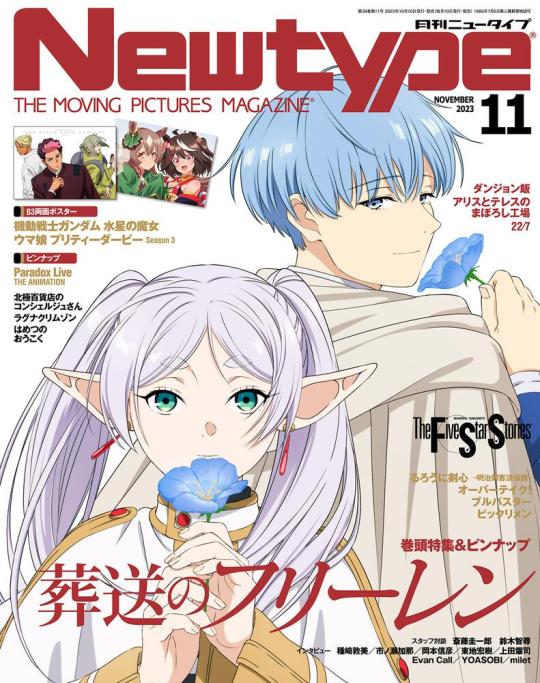
Newtype cover 2023年11月 issue
#Newtype#Monthly Newtype#Frieren#Frieren: Beyond Journey's End#Sousou no Frieren#Newtype covers#magazine covers
98 notes
·
View notes
Text
April 1, 1997
OMG OMG OMG
You are eagerly tearing open the copy of Newtype Magazine you camped outside of a convenience store for. You need more Utena content. The show is starting tomorrow, and you need a fix!! Newtype's got you:

And so do we! Thanks to forum member xenofem, there's already a rough translation of this spread! :D I have every Newtype magazine published during Utena's run (and then some), and will be uploading on the release schedule that coincided with the show! Convenient way to pace myself, I guess. ;D
But the ain't all! Newtype also included some character design sheets this month, and the beginning of the monthly release episode summaries is also in this issue! For more, check out where I've uploaded the Utena pages, along with the cover and ToC!
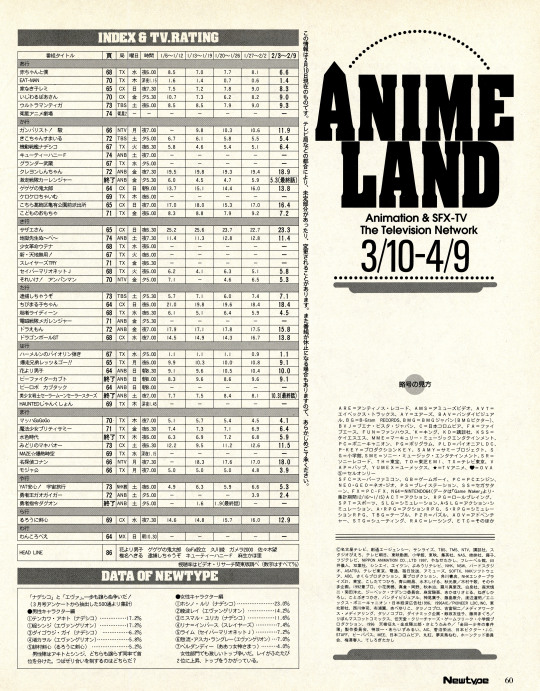
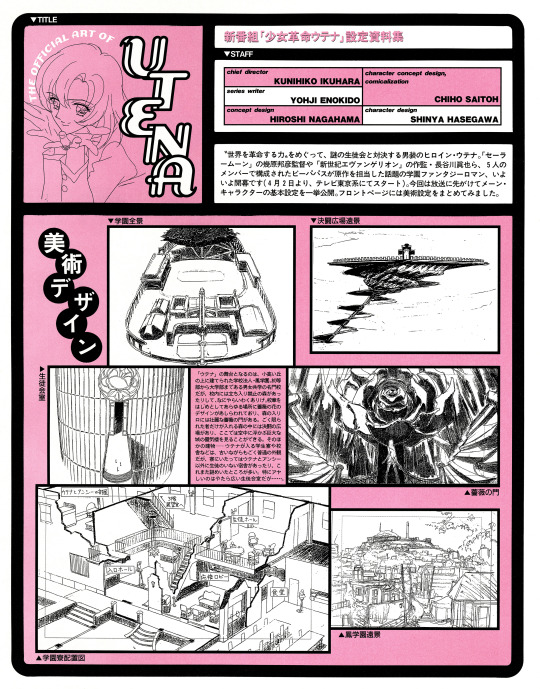
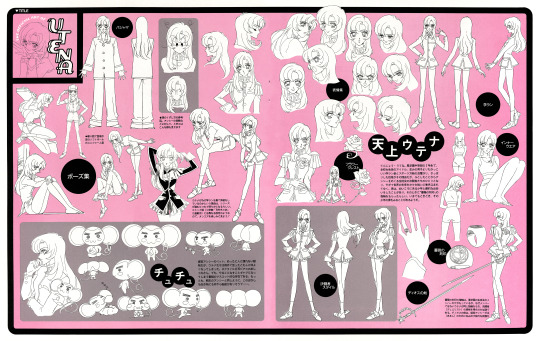
Join us for our weekly watch of the series, starting here!
#revolutionary girl utena#shoujo kakumei utena#utena#utena watch#empty movement#newtype#classic anime
380 notes
·
View notes
Text

The gang on a magazine cover! From the May issue of Monthly Newtype
https://x.com/dun_meshi_anime/status/1775888050255732969?s=46&t=K8cLErPhxcN4sqO-tPv31w
170 notes
·
View notes
Text

Link collection!
(only included the ones that had enough of a different design)
List of the Links:
Legend of Zelda
A Link to the Past
Ocarina of Time
Young Link (Ocarina of Time)
Wind Waker / Toon Link
Twilight Princess
Skyward Sword
Breath of the Wild / Tears of the Kingdom
Blue Link (Four Swords)
Red Link (Four Swords)
Violet Link (Four Swords)
Minish Cap
CDI Zelda
Hyrule Warriors
First Link (Skyward Sword prequel manga)
Animated series
Captain N animated series
Dark Link
Shadow Link (Four Swords manga)
OG Zelda game guide
The Legend of Zelda: The Mirage Castle (1986 novel)
Adventure Hero's Books no. 10 (1987 novel)
Newtype June 1986 magazine
Girl Link from Monthly Shonen Captain magazine
Futabasha Fantasy Novel Series: Legend of Zelda (1992 novel)
Paul (Futabasha Fantasy Novel Series: Legend of Zelda 2 (1992 novel))
Bunny Link (A Link to the Past)
Deku Link (Majora's Mask)
Goron Link (Majora's Mask)
Zora Link (Majora's Mask)
Fierce Deity Link (Majora's Mask)
Wolf Link (Twilight Princess)
Linkle (Hyrule Warriors)
Ravio (A Link Between Worlds)
Ancient Hero's Aspect (Tears of the Kingdom)
296 notes
·
View notes
Text
Collection of Evangelion artbooks, magazines, and the like. To my knowledge, all of these are official.
Artbooks
Eva Collection
Die Sterne
Der Monde
Evangelion 3.0 Artbook
Newtype Collection
Concept Design Works
Magazines/Misc.
NEON GENESIS EVANGELION PROJECT NOTE 丨 新世紀福音戰士 企劃書
EVA - EXTRA - EXTRA
Monthly Eva 3rd V.2
Monthly Eva 3rd March 2007
Anime Express - Evangelion Special
Mangazone Special - Neon Genesis Evangelion
Kame Special No. 7 - Evangelion
Neon Genesis Evangelion Encyclopedia
Went on a deep dive today. All of these, save for the Newtype Artbook, are on the Internet Archive. There's a lot of cool art in these, and to save you some time, I've collected my findings in this post!
#neon genesis evangelion#evangelion#shinji ikari#rei ayanami#asuka langley soryu#evangelion rebuild#evangelion artbook
45 notes
·
View notes
Text
Find a New Home and Family in Newly Licensed Yuri Manga 'Monthly in the Garden With My Landlord'
On Friday, at a panel at Sakura-Con, Yen Press announced that it has licensed Yodokawa's Yuri slice of life manga Monthly in the Garden With My Landlord (Maitsuki Niwa-tsuki Ooya-tsuki) for English release. The first English volume will be published in the Fall of 2023.
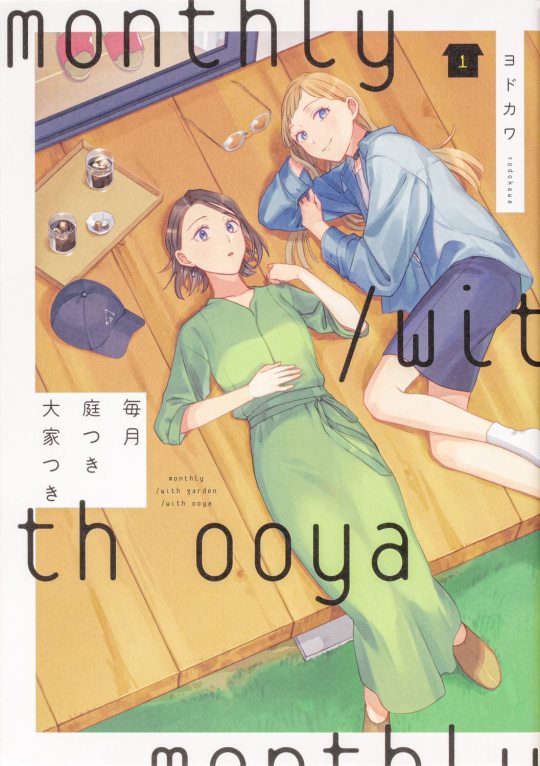
The publisher describes the series:
Asako Suga needs a change to get over her recent breakup and decides moving to a new home would be just the thing. She finds a great little place a bit removed from the city with a lovely garden, but there’s a catch—the house also comes with a live-in landlord! Having a charming girl lazing about would be distracting enough, but it seems she’s keeping a secret as well…
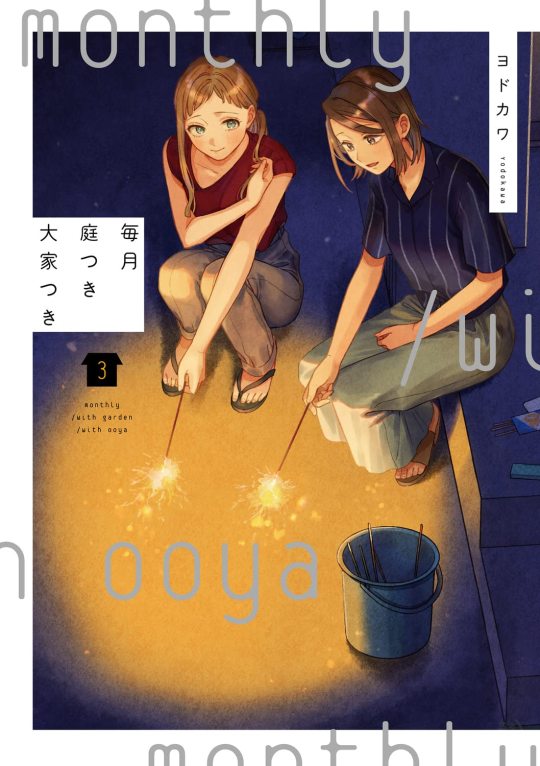
Monthly in the Garden With My Landlord began digital serialization on Comic Newtype in June 2021. Kadokawa published the third compiled volume on March 29 in Japnese.
The manga has received positive reviews from critics. Erica Friedman awarded both of the first two Japanese volumes an 8/10 score, praising its focus on "found family" and partnership.
Yokokawa is a Yuri mangaka also known under the circle names Tebacco and givelit. She has contributed to the Avalon, Chocolat, and Offical Bloom Into You anthologies. Her works are often slice of life shakaijin Yuri, featuring romance between adult women, such as Tora to Hachidori, onshot Men Men Musubi, and Ichikoe, Nifuri, Tachiaoi, which is currently serialized in Comic MeDu.

Monthly in the Garden With My Landlord will be Yokokawa's first series published in English. Volume one released in Fall 2023.
Source: Press Release
#Yuri#manga#news#lgbt#lgbtq#yuri manga#gl#gl manga#wlw#lesbian#lesbians#girls love#shakaijin#yen press#queer#lgbtq+
209 notes
·
View notes
Photo
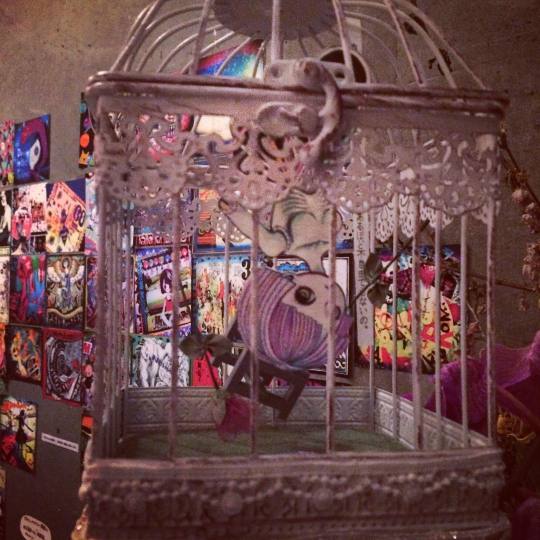
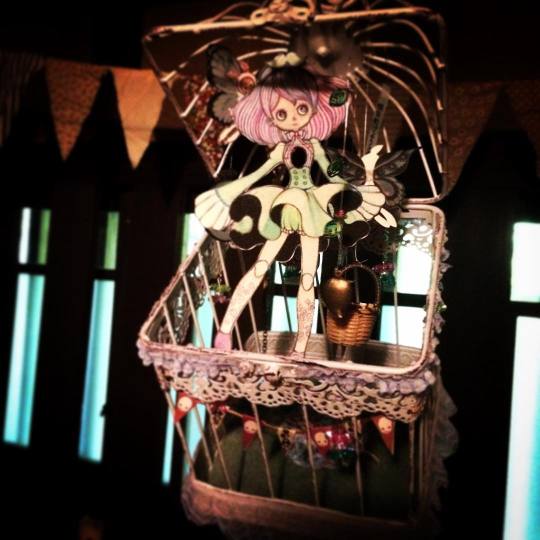
_1_ 2_
Bird cage art from the Yukashita Exhibition (2016)
In the first image you can see Manpukuron illustrations from Maaya Sakamoto’s monthly column in Newtype magazine!
369 notes
·
View notes
Text
To kick off 2004 after 10 episodes it's Newtype Magazine's turn to put out their FMA cover issue special! Let's take a look inside.

The story heads to Xenotime, so we get an info page with some details on Russell and Fletcher. And since viewers are still recovering from Nina's storyline, the next page takes a look back at the prior month of episodes.


All of the critical military cast members get a bit of coverage, as well additional coverage for the sins, Scar, and supporting cast. The change in OP/ED is revealed and L'arc~en~Ciel & Yellow Generation are announced as the next round of singers.


Fullmetal Alchemist and the Broken Angel PS2 game is about to go on sale and gets two pages of coverage.

DVD #1 goes on sale shortly after this issue of Newtype arrives on shelves, and a 2-page advertisement for it is in the magazine.

Episodes 11 - 13 will air during the magazine's shelf life and we get our titles and episode synopsis' for them. As for Monthly Sales, Melissa is absolutely crushing the competition. Melissa's sales totals for the prior four weeks was 112,807 units, and the combined unit sales totals of the rest of the CD chart comes to 114,154. FMA manga volume 6 charts at #10. In terms of rankings, FMA falls from #2 in the December issue to #3 this month. Ed rises from #4 most popular male characters to #3 and Al makes Newtype's list for first time at #10.

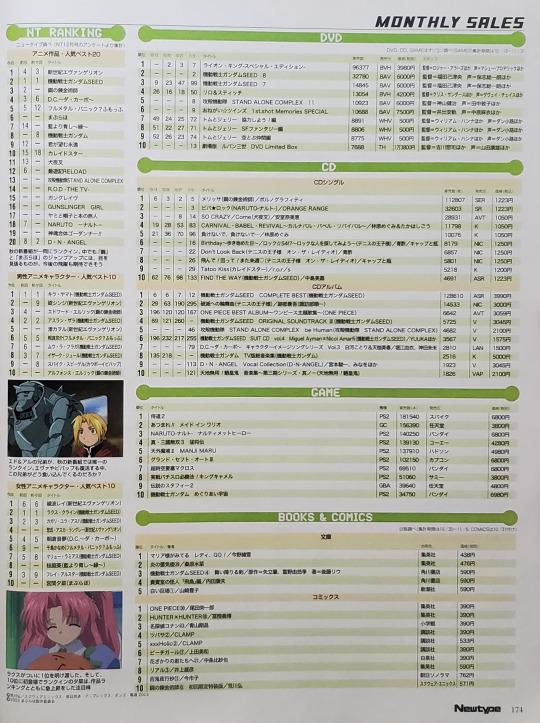
Furoku bonus for this month is an FMA pencil board/shitajiki

59 notes
·
View notes
Text
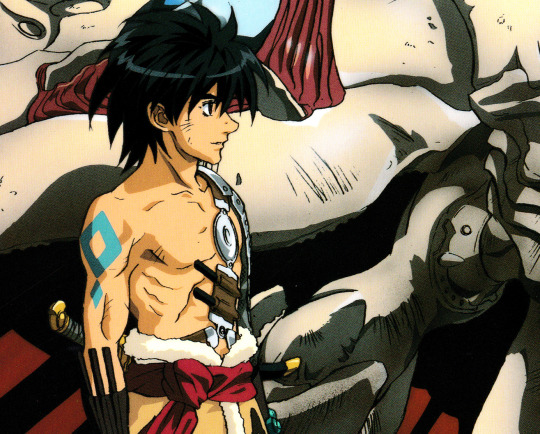
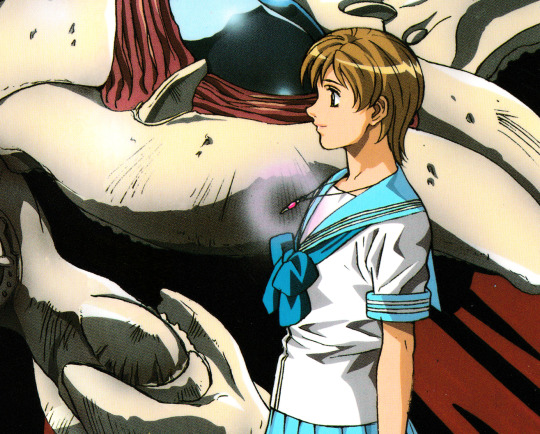
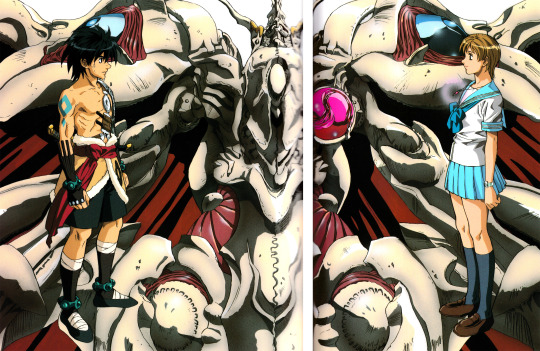
Kadokawa Shoten "Monthly Newtype" magazine (June 2000)
Illustration by Hiroshi Ousaka. Animator Hiroshi Ousaka Illustrations & Works (2008) Source, personal collection.
#escaflowne#tenkuu no escaflowne#the vision of escaflowne#van fanel#hitomi kanzaki#This illustration is gorgeous#sadly it can't be scanned without damaging the book nor unbinding it#Esca-art-official
123 notes
·
View notes
Text
All scans are my own unless otherwise specified. There are hundreds in the queue, two posts per day (one art, one interview/other text) with occasional extras.
Messages are open for questions, comments, requests for specific scans, or just brain rotting this show. Donations of any material scanned by you are also gratefully accepted. Anyone can translate anything found here into English or any other language without asking. Please let me know if you do and I will add links to your translation.
The goal is preservation of artwork, raw and translated interviews, canon information and other rare print material.
I am working on a merch wiki for this show, look forward to it in the future.
Want list here
Tags:
By Status: Partial Translation Translated Untranslated
By Magazine: Acteur Magazine Anan Animage Anime Flix Animedia Beat Magazine CG World Cinema Cinema Cool Voice Cut Magazine Drama Magazine Ent Magazine Figure Oh Great Mechanics DX Hayakawa Mystery Magazine Kikan Ace Kinezo Kyrabi Miracle Jump Misc Magazine Newtype Newtype Ace Otomedia Pash Screen Plus Spoon 2di TV Bros Unknown Issue Unknown Magazine
By Book/Pamphlet: English of Heroes Hero Gossips Hero TV Fan Vol 1 Hero TV Fan Vol 2 King of Works Katsura Artbook Katsura Artbook 2 Monthly Hero Multi Pouch Book Scenerio Document Smart The Rising Special Book Sum Up The Beginning Souvenir Program The Rising Pamphlet The Rising Pia Mook The Rising Souvenir Book The Rising Super Prelude Pamphlet The Rising Superfan Book
By Type: Article Cast Comments Comments Event Reports Interview Lyrics Novel Short Story
By Movie/Shorts: Side Tiger Side Bunny The Beginning The Rising Too Many Cooks Spoil The Broth
By Character: Kotestu T. Kaburagi Wild Tiger Crapsuit Barnaby Brooks Jr. Karina Lyle Blue Rose Ryan Goldsmith Golden Ryan Nathan Seymour Fire Emblem Keith Goodman Sky High Pao-Lin Huang Dragon Kid Ivan Karelin Origami Cyclone Antonio Lopez Rock Bison Lara Tchaikoskaya Magical Cat Sengoku Subaru Mr. Black Thomas Taurus He is Thomas Yuri Petrov Lunatic Kaede Kaburagi
For more tags please see here and here
Lyric scans can be found here
38 notes
·
View notes
Text
The Animanga Find Of A Lifetime



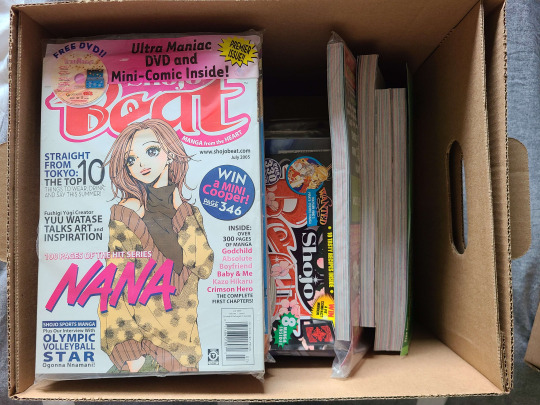

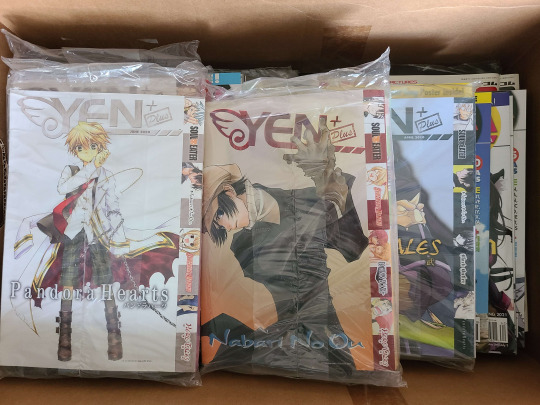
Yeah, I haven't really been too active this week. I've been busy during the week with life and whatnot, but a good chunk of the end of this week has been about this pile of anime and manga magazines. It's no longer just a "pile" of Animerica Extra, but a bonafide Mt. Everest encroaching on 400 issues, so I have lot to explain with just this haul alone.
So, where to begin? An outline is probably best.
This haul is a total of about 311 issues (a little more because of a few duplicates and magazines that aren't strongly related to animanga). That huge number is split across 16 different magazines, 4 of which (combining for 37 issues) are Japanese language.
The full list, in alphabetical order, is: Animage (JP), Animerica, Animerica Extra, Anime USA, AX (JP), AX DVD (JP), Mangajin, Neo, Newtype (JP), NewtypeUSA, OtakuUSA, Pulp, Protoculture Addicts, Shoujo Beat, Super Manga Blast, and Yen+.
Protoculture Addicts and Animerica stand out in the bunch because they together combine for over 100 of the issues in the haul, which is good because they're by far the longest running in the lot.
Speaking of those, let me give a bit of broad history in regards to the magazines.
While the majority are English language, there's actually a pair of them that were created/published outside of the US.
Starting it off, Protoculture Addicts was created in Montreal, and was actually ran as a Robotech Fanzine for about a year or so before becoming a full fledged magazine.
And then there's Neo, the UK based magazine. It's arguably the most interesting ongoing magazine out of the lot (with Otaku/Anime USA being the only others). It's also the only monthly animanga magazine to be currently published in English as OtakuUSA is bimonthly, and AnimeUSA is quarterly.
But that's enough history, what about the insides? For the most part they're relatively standard, but there's not "as many" manga anthology issues in this mountain.
Super Manga Blast, Shoujo Beat (only 9 issues), Animerica Extra (which I now have extras of), Pulp (only 2 issues), and Yen+.
That last one is the most interesting to me purely because of an editorial/column penned by "The Otaku Pimp". Yeah, that's a real thing that appears in that magazine which is incredibly funny to me.
More on the interesting side though is Mangajin, a magazine focused on teaching Japanese through Japanese culture, which of course includes manga. This one is especially interesting because it oftentimes features the only instance of the manga inside being translated to English.
And this is all just the tip of the iceberg. There's an insane amount of information and history in the magazines, and an exciting amount of unknowns with the frankly incredible amount of promotional DVDs that remain attached to so many of these issues.
I just have to get through it all.... which will take a long time. Will certainly be recruiting friends and whoever to help out, so hopefully I won't be doing this for the rest of my life haha
#anime haul#manga haul#anime magazine#manga magazine#viz media#viz manga#viz#dark horse comics#dark horse manga#yen press#anime#manga#anime and manga
24 notes
·
View notes
Text

Newtype cover 2023年10月 issue
4 notes
·
View notes
Text

The Ancient Magus' Bride SEASON 2 - Monthly Newtype June 2023, full scan.
#the ancient magus' bride#the ancient magus bride#tamb#mtny#mny#ancient magus bride#ancient magus' bride#magus bride#magus' bride#chise hatori#mahoyome#mahoutsukai no yome#mahou tsukai no yome#anime#BLESS YANDE.RE FOR FINDING IT AAAASAA
64 notes
·
View notes
Text
Clamp Art Style Analysis: Series styles: Kobato
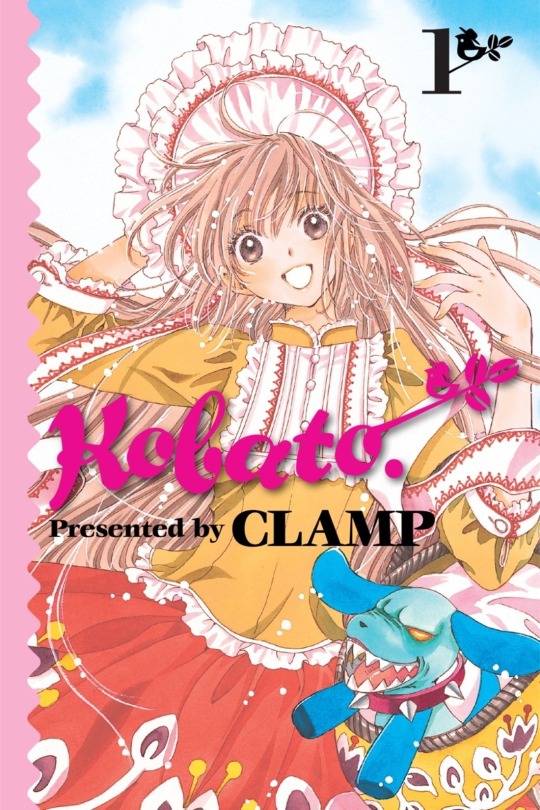
While I was writing this there was a reason I couldn’t elaborate on Kobato it was because I lacked context. I missed a lot of things on Kobato due to the lack of context. Clamp art is extensive so I predicted I may not be able to cover it in one post. This post is written based on an interview I read so I am going to explain the art in Kobato to the best of my abilities.
Kobato ran in two magazines, monthly Sunday GX magazine and new type, Sunday Gx was the first magazine from Kadokawa that published Kobato and the Newtype was the second. Both magazines had male readers whereas Newtype had a male readership and Sunday Gx was a senine magazine. In Sunday Gx, there were lots of works with many screen tones and gradients all of them had ink but had a clean print without screen tones and gradient on them had a lot of ink but had clean print without the screen tone becoming blurred clamp couldn’t cramp to 20 panels in one page for Sunday Gx. While Clamp was drawing Kobato in Newtype there were a lot of problems, clamp found drawing Kobato in Newtype tough because of the tight deadlines which caused them to end up falling behind schedule to finish it. Though Netype had a large format Clamp, it couldn't cram 10 or 20 clamps and could only draw 14 pages which didn’t allow for story progression. Clamp even said they didn’t want to read a cramped shoujo manga.
Kobato was created while Clamp was working on Tsubasa during the time, Clamp knew Tsubasa would have a darker storyline as it progressed so Clamp wanted to depict a brighter story Clamp wanted to create a story with a cute girl as the main character and decided that the story Kobato was intended for a happy ending.
When it came to creating the character Kobato, the editor from Sunday Gx magazine said wanted a character to become a muse of the magazine. in creating a divine character clamp had no clear image of what a goddess is since the idea of a goddess can change over time so it is hard for them to picture it. However, clamp misinterpreted the desire when in fact the editor didn’t ask Clamp to create the goddess of the magazine but to make a character that readers can fall in love with something that both girls and boys would enjoy.
Kobato may have come off as regular shojo manga but the manga seemed to be created with a much older audience in mind judged by how it ran in a senine magazine it had some properties as shojo manga sprinkled in. Kobato has a bit of realism in it and references the supernatural but there is nothing too serious going on. It was drawn to be aimed for a relaxed feel so there were no constant dramatic events and intense pursuits. Despite how real the manga can be the tone of the manga is very relaxed that was what Clamp is creating it for.
When it came to describing the contents of the series they discussed it with their editor like with the lines of argument
drew sketches made various changes and corrections clamp had the story ready in two to three minutes but the character designs took 20 minutes. when it came to creating character designs in Kobato, Kobato took the longest
deciding what type of hairstyle for Kobato is difficult it had a hard time they didn’t know whether to make it long or short when it came to kobato’s hairstyle clamp did not know whether to make it long or short it wasn’t a minor manner since Kobato is supposed to be the main image of the magazine.
They wanted to draw girls with long hair as a reaction to Sakura from Tsubasa who has short hair, but long hair gave Clamp less room for variations of style but was difficult to ink all the time in manga, and in truth, Clamp can invent unreal hairstyles that would cost less to draw her hair. Clamp strived to create a hairstyle that could be reproduced in reality but clamp disliked the fact the set of the hairstyle looked unnatural. so for the hairstyle, they created a fusion of short and long hair.
When it comes to drawing and making stories Clamp pays good attention to the details of the story they are creating clamp needs background information of the story they are working on this is seen in the way the the characters in Clamp wore different clothes each time they appeared. In Tsubasa, the main characters wear different outfits because they are traveling across different worlds so the clothes are created to reflect that. That's more groundbreaking in a sense since people change their clothes every day it feels like you're watching real people for this aspect.
For Kobato her clothing is fundamental to her concept. Kobato clothes change all the time. This aspect goes over people's heads since the characters in Clamp in different clothes are nothing new that may be something we don’t notice at first due to Clamp always their character changing their clothes. However one may ask how someone who is carrying minimal stuff carries all those clothes. This aspect causes readers to question how she got all those outfits despite the fact that she barely carries anything with her. her changing her clothes each time makes readers wonder where she is carrying her outfits despite not carrying anything due to her lifestyle
It was revealed that Kobato’s clothes changing is a result of a mysterious ability that references that Kobato is not an ordinary human, and having to reveal that ability may spoil her true identity. the reason why Clamp drew Kobato's clothes change every day is that Kobato wearing the same outfit would be a spoiler to her true identity since people don’t wear the same clothes every day and having Kobato wear the same outfit would be much of spoiler clamp keeps Kobato's true identity ambiguous Kobatos a character whose never changes but wears a different outfit
Clamp had fun designing cute hats for Kobato. Clamp struggled with whether or not Kobato leaves the hat on or takes it off when she went to sleep but ultimately decided to leave it on asleep
Clamp wanted to create a new type of heroine that they hadn’t invented until now, someone suggested that Kobato is derived from Anne of Green Gables though Kobato was not much of a reference to it was more like Mary Poppins.
Kobato's character design is based on Mary Poppins. Both are mysterious entities, wear hats, and carry a bag and umbrella. Kobato wearing many different outfits reference to Mary Poppins’ never-ending bag the umbrella is a clever nod to Mary Poppins which is seen in the colored illustrations

that appeared in Clamp in Wonderland
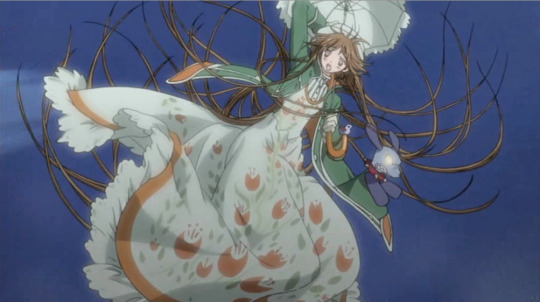
and mentioned briefly in the main story Kobato is an easy call back to Mary Poppins in both character and design and her role in helping people in the stories. Kobato's design referenced Mary Poppins and Clamp had wanted some elements of Comet, a manga character from the 1960s, but Clamp gave up since it didn’t fit the profile of a clumsy character they were looking for.
For Ioryogi’s design: His design came from a doodle Nekoi did that was seen on the official clamp website, Nekoi first drew him in clamp no Kiseki about a blue stuffed dog Ohkawa liked the idea it became the partner for Kobato they decided to use Ioryogi’s design in the manga because they needed a partner for the protagonist someone that Kobato could talk to. While they were designing Ioryogi's true form, they settled to make Ioriyogi more beast-like this is from Ohkawa who thought that beast-like characters that get into conflicts with heaven as punishment were turned into stuffed animals this is made to explain why he is stuck in a stuffed animal form that his stuffed animal form can be from how he was beast-like in his form Designing his true form took some time Ioriyogi has a wolf-like appearance. Nekoi and Mokona settled on creating animalistic elements in the designs for the rest of the characters in Kobato to draw the others the true forms as more beastlike
Next up is Fujimoto, Fujimoto is named after Kiyokazu Fujimoto the chief of the project department of Pyrotechnist, the company that works as a clamp managing agent. This isn’t the first time that Clamp took the name of someone they know and used it to name their character in their works; they did that before as seen within the character seichiro aoki of x taken from their editor. They take the names of people that they know and use the names on their characters to put a bit of themselves in the works. Fujimoto's distinctive features in his design are his glasses and long ponytail. However, Fujimoto's ponytail is cut off at the end when he's a lawyer, a reference to a sense of having aged over the years and gives the sense that he changed to maintain the same hairstyle while also showing change made the tail longer in his lawyer outfit.
Although Clamp loved drawing glasses, they found glasses in terms of drawing in manga hard. The lens is difficult to handle when drawing because it affects the expressions in the eyes of the characters Sayaka was drawn with glasses because Clamp wanted a female character with glasses.
Nekoi created the character designs from Wish; it was Nekoi who originally designed the characters for Wish and had a hand in designing and creating Suisho’s clothes Suishou’s clothes look similar to what the angels in Wish wore.
Mokona created the world for Kobato. Mokona found it challenging to create a new world in Kobato and decide how to design it.
Kobato Reference to other works that crossed over like Wish but are more casual compared to Tsubasa and Holics tightly connected works
As I pointed out before in Kobato’s character design section, drawing long hair is challenging due to the amount of lines to ink, Clamp wanted to create characters with long hair only to change midway when they realized the difficulty. clamp found drawing long hair to be challenging due to inking it and the number of lines that go with long hair
Clamp aimed to create an atmosphere that was close to shoujo manga. Kobato uses thin lines in the manga similar to the lines of card captor Sakura and less ink which gave it a similar shojo manga appearance.
Clamp tried to not make the panels too dark and didn’t have many characters with dark hair having many characters with dark hair darkened the visuals. They were careful about it. This Clamp uses less toning in the pages which has a lighter feel similar to how Clamp aimed for something bright and light and the paneling flows well is to make it as relaxed so they make it bright and light
The colors that are used for the illustrations had a soft watercolor touch they didn’t paint too heavily with Kobato illustrations so they did it by not layering too much paint and the brush strokes could remain visible which causes it to go beyond the edges.
So this is my post on Kobato art style analysis. This is something I missed and tried to explain but I could botch explain the artstyle in this post but I’m glad I expanded on Kobato's section.
15 notes
·
View notes
Note
Trying to catch up on things and I'm a little confused - how many manga series does Tiger & Bunny have?
I have 7/8 volumes of Tiger & Bunny in English, but your recent ask mentions you're working on volume 7 of what you're translating as well, which from what I gather *has* no english release(?) so I assume it's a different series??
Plus the Anthologies exist, and the The Beginning sides A and B... are there more? What is happening I'm so lost, why is this so underappreciated in the US and hard to learn about lol
YEAH SO. Here's what's officially available in English, to the best of my knowledge:
Tiger & Bunny by Mizuki Sakakibara (9 volumes)
Tiger & Bunny: The Beginning by Tsutomu Oono (2 volumes)
Tiger & Bunny Comic Anthology 2-in-1 (2 volumes) — These are compilations of unofficial 4-komas and short stories that were originally published in Japan by Asuka Comics DX as 4 individual volumes; to this day I'm baffled (although pleased) that this got brought over while Ueda's series was apparently passed over
Aaaaaand...yeah. That's it.
The manga series we're currently failing at translating is by Hiroshi Ueda. Officially it's called Tiger & Bunny: The Comic, but since it once ran in the Miracle Jump magazine you'll often see me refer to it as just "MJ" series" or some variation thereof. (This has fucked me over now that Tiger & Bunny: The Comic 2 runs online for a different publication.**) Whereas Sakakibara's series retells the story of season 1's first cour (albeit with some changes/additions that were apparently discarded ideas from the anime), Ueda's has completely original stories written by Erika Yoshida (one of the anime's screenwriters) that jump around in the series chronology. Frex, one of the earliest stories (both in terms of this comic series and the anime's storyline) explains why Ivan and Pao-Lin aren't around in episode 5 for Barnaby's birthday surprise (with the rest of the chapter showing them trying to make up for it), and then there's also one that's set a month or so before The Rising. Stuff like that.
**Or maybe it's still kinda the same but under a different name? Miracle Jump was previously known as Monthly Young Jump before its rebrand in 2011, and then the website that The Comic 2 runs on is Tonari no Young Jump, soooo.
Regarding Sakakibara's series, there are 4 supplementary volumes that were released collecting the bonus content that ran alongside that series when it was initially running in Newtype Ace, both published by Kadokawa Comics A:
Tiger & Bunny-Chan by Kotoni Shiroishi (2 volumes) — Features primarily 4-komas with a few short stories. And the birth of the entity known as Kittyface Pao-Lin.
Tiger & Bunny Sky High by Virginia Nitouhei (1 volume) — Four short stories featuring Sky High.
Tiger & Bunny Origami by Yanagi Yukisuke (1 volume) — Six short stories featuring Origami Cyclone.
No clue what's been going on with Sakakibara's serialization of the second season, though — haven't been following it.
For the more general unofficial-but-also-official anthologies, BOY HOWDY THERE SURE ARE A LOT... Aside from the 4 that got localized, I currently have 9 in my collection:
Tiger & Bunny: The Beginning Comic Anthology published by DNA Media Comics (1 volume)
Tiger & Bunny Comic Anthology published by DNA Media Comics (3 volumes; missing volume 1)
Tiger & Bunny 4-Koma Kings published by DNA Media Comics (3 volumes)
Tiger & Bunny Official Comic Anthology published by Frontier Works (1 volume; "official" here is written as 公式)
Tiger & Bunny Anthology Comic Go! Go!! Tiger & Bunny published by Movic (3 volumes; missing volumes 1 & 2)
Tiger & Bunny Official Anthology Extra published by Asuka Comics DX (1 volume)
I do have some scattered scanslations on hand from one or two of these volumes (from back in the T&B LiveJournal community days, ha), but before I potentially share them I need to sort out which volumes they actually belong to and make sure that any appropriate credit is retained.
Hope this is helpful!
37 notes
·
View notes
Text




Yuriko Tiger instagram post 8/2/2024
【大発表】 BIG ANNOUNCEMENT 📣 English ⬇️ 8/8(木)発売『月刊ニュータイプ』9月号にてコラボグラビアを担当させていただきました!!大好きな作品なのでとっても嬉しいです♡
I was in charge of a collaborative photo shoot in the September magazine of “Monthly Newtype” released on Thursday, August 8th!! I’m very happy because it’s one of my favorite series ♡
#Instagram#Meta#Cosplay#Cosplayer#Cosplay Girl#Cosplayer Girl#コスプレ#コスプレイヤー#コスプレガール#コスプレイヤーガール#ユリコ・タイガー#ユリコタイガー#Yuriko Tiger#Yurikotiger#Yuriope#「エレ」#エレ#「ERE」#Ere7rock#Ere#ERELAST#Psykhere#EronoraMono#Eredalle#Yuriko tiger Is Not Mai Waifu!#Plus sized elf#Elfuda
5 notes
·
View notes